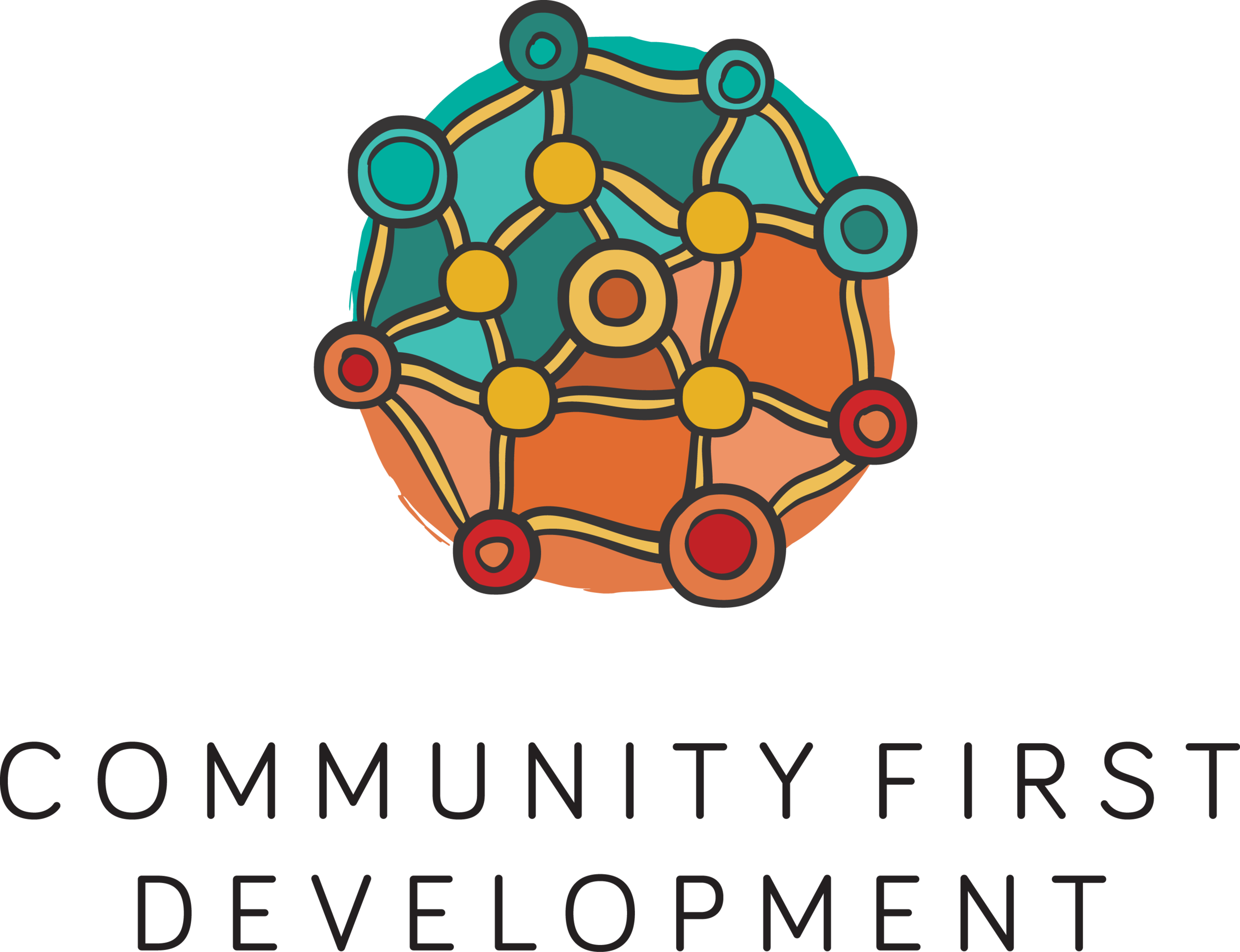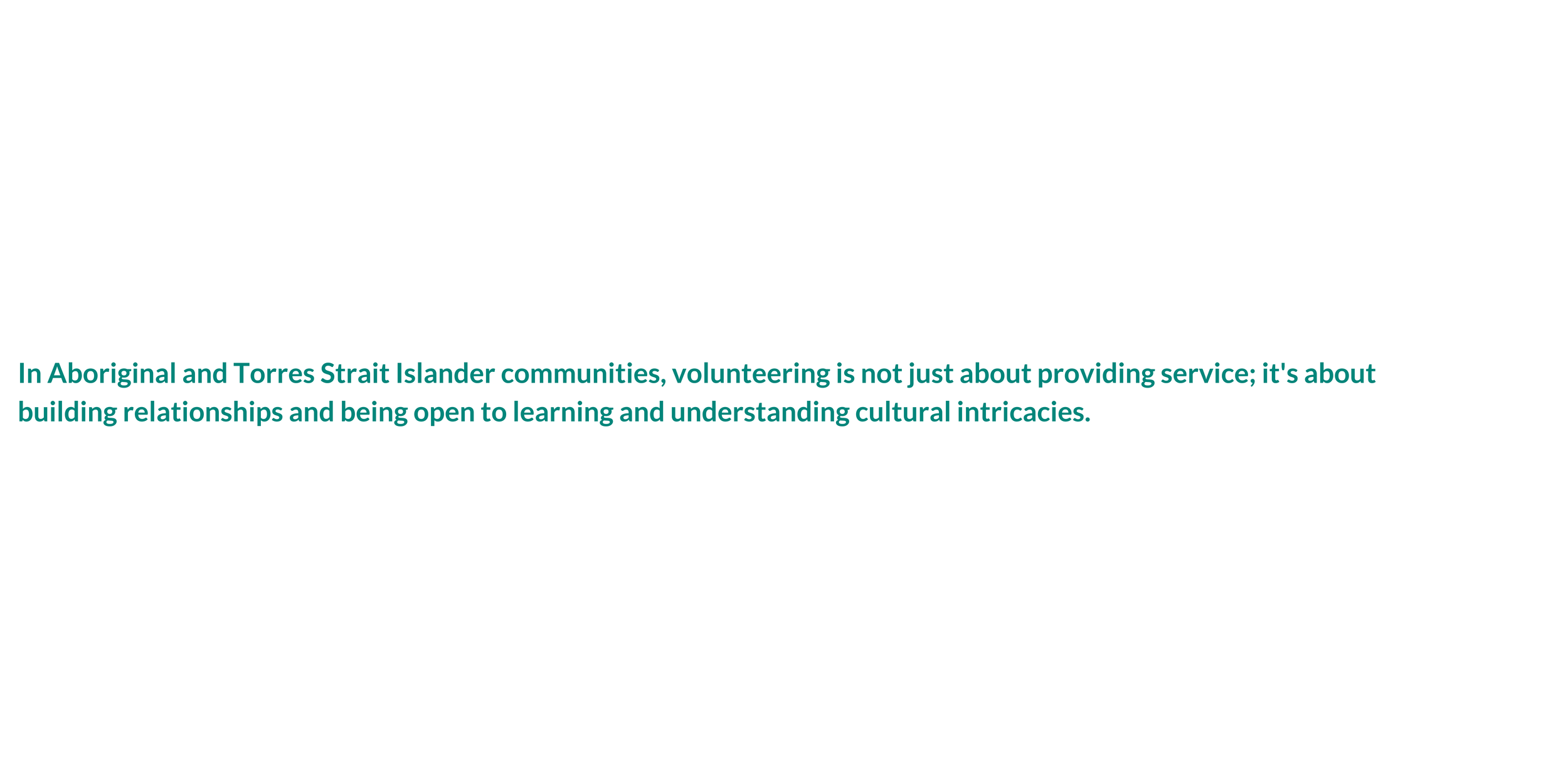National Volunteer Week: Volunteering in Aboriginal and Torres Strait Islander Communities
The incredible women of Bima Wear showcasing their stunning new design and print by Helen Tipuamantimirri, called ‘Her Country Warriyuwu’. This print is for Bima Wear’s new staff uniforms.
This National Volunteer Week, themed "Something for Everyone," we take the opportunity to reflect on what makes our volunteering model distinct. While the theme suggests a universal approach, ours is more specialised. We support Aboriginal and Torres Strait Islander communities through a volunteering model grounded in the principles of self-determination, community leadership, and mutual respect.
Here’s how...
We Take a Community-Led Approach to Volunteering
A community-led approach to volunteering deeply contrasts with the conventional methods of volunteer recruitment and engagement.
A community-led approach means that the community is in the driver’s seat, making decisions that shape their future. Our volunteers' step in to support these locally driven initiatives, bringing their skills and knowledge to enhance the community’s own strengths and goals. This approach empowers communities by placing them at the forefront of decision-making processes, ensuring that volunteer efforts align closely with the community's specific needs. We believe that true impact unfolds this way.
We carefully match volunteers with communities where their skills can have the most impact. This careful consideration helps to foster a sense of respect and trust between volunteers and community members, paving the way for effective and sustainable community development, and a transformative impact on volunteers themselves.
It's A Two-Way Learning Experience
Volunteering in Aboriginal and Torres Strait Islander communities is a two-way experience - volunteers gain insights into the community's local customs, stories, and way of life, that broadens their understanding and appreciation of Aboriginal and Torres Strait Islander cultures. While the community benefits from the skills and knowledge of the volunteers. Volunteers support communities to address specific challenges with new ideas and innovative approaches. This mutual exchange enriches both parties and leads to more meaningful outcomes.
In our 2024 active volunteer survey, we asked respondents about the personal impact of volunteering. Here’s what they had to say:
81% agreed or strongly agreed that their ability to consider or recognise diverse perspectives had improved.
88% agreed or strongly agreed that their knowledge and understanding of First Nations' cultures, histories and experiences has improved.
88% of respondents agreed or strongly agreed that they had been able to share their learnings with others.
We are Committed to Supporting our Volunteers
We are committed to supporting and preparing our volunteers to work alongside Aboriginal and Torres Strait Islander communities. Volunteers are inducted through a two-part program, including an online and in-person course. The online course is designed to support volunteers to develop a deep understanding of the frameworks which underpin our work. The in-person workshop includes interactive activities which support our volunteers to build their knowledge and skills to work respectfully alongside self-determining communities. Once volunteers begin working with a community, they continue to receive support from one of our dedicated Senior Community Development Officers and an assigned community cultural guide.
Why A Community-Led Approach is Important to Volunteering
A community-led approach to volunteering is particularly crucial in Aboriginal and Torres Strait Islander communities for several reasons. When volunteers work under the guidance and invitation of the community, it naturally leads to stronger trust and collaboration.
Projects that are community-led are more likely to be sustainable in the long term because they are seeded in the goals and strategies of the community. This means that the projects are more likely to continue and evolve even after the volunteer engagement ends.
Trust is also a critical component in volunteer and community relationships, particularly given the historical and ongoing challenges faced by Aboriginal and Torres Strait Islander communities in Australia, and in communities with a history of external oversight and intervention.
A community-led approach respects the leadership and wisdom of local communities, making volunteer programs much more effective.
We invite people to discover the power of volunteering in Aboriginal and Torres Strait Islander communities. Learn more about volunteering with us.


